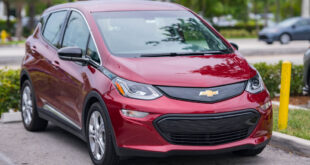Electric Car Myths Debunked: Facts Everyone Should Know Electric cars (EVs) are revolutionizing the automotive industry, but misconceptions continue to cloud public understanding. This article addresses common myths surrounding electric vehicles, offering clarity and actionable insights to empower informed decisions.
What Are Electric Cars?
Electric cars run entirely or partially on electric energy stored in batteries. They emit zero tailpipe emissions, making them an eco-friendly alternative to traditional gas-powered vehicles. However, misconceptions often deter potential buyers.
Electric Car Myths Debunked
1. Electric Cars Are Too Expensive
While the upfront cost of electric cars can be higher than gas-powered cars, EVs offer long-term savings on fuel and maintenance. Many countries also provide tax incentives, rebates, or grants to make EVs more affordable.
2. Electric Cars Lack Range
Modern EVs have significantly improved range. Many models now offer over 300 miles on a single charge, sufficient for daily commuting and long-distance trips.
3. Charging Takes Too Long
Charging infrastructure has evolved. Fast chargers can recharge a battery to 80% in under 30 minutes, and home charging stations offer overnight convenience.
4. Electric Cars Are Not Environmentally Friendly
Although EV production involves energy-intensive processes, their lifetime carbon footprint is significantly lower than traditional vehicles, especially when charged with renewable energy sources.
5. Electric Cars Are Only for Cities
EVs are versatile and suitable for both urban and rural areas. With the growing charging network, traveling across regions is increasingly convenient.
6. EV Batteries Don’t Last Long
Modern EV batteries are designed for longevity, often lasting over 10 years or 150,000 miles with minimal degradation. Manufacturers typically offer warranties for added assurance.
7. Limited Charging Stations Make EVs Impractical
Global charging infrastructure is expanding rapidly. Apps and navigation systems help locate nearby stations, ensuring accessibility wherever you go.
8. Electric Cars Are Not Powerful
Electric motors deliver instant torque, providing superior acceleration compared to many traditional engines. EVs are not only efficient but also performance-oriented.
9. EV Maintenance Costs Are High
Electric cars have fewer moving parts, resulting in lower maintenance costs. There’s no need for oil changes, and brakes last longer due to regenerative braking systems.
10. Electric Cars Will Overload the Power Grid
Energy providers are preparing for increased EV adoption. Off-peak charging incentives and renewable energy integration mitigate potential grid stress.
10 Practical Tips for Electric Car Owners
- Leverage Tax Incentives: Research available rebates in your region.
- Install a Home Charger: Ensure convenient overnight charging.
- Use Regenerative Braking: Maximize energy efficiency.
- Plan Long Trips: Use apps to locate charging stations along your route.
- Charge During Off-Peak Hours: Save money with lower energy rates.
- Monitor Battery Health: Follow manufacturer guidelines to extend lifespan.
- Stay Updated: Regularly update your EV’s software for optimal performance.
- Consider Solar Panels: Pairing EVs with solar energy reduces environmental impact.
- Drive Efficiently: Avoid sudden accelerations to conserve battery power.
- Educate Others: Help debunk myths and promote EV adoption.
10 FAQs About Electric Cars
- Are electric cars cheaper to maintain than gas cars?
Yes, EVs have fewer parts and require less frequent servicing. - How long does it take to charge an EV?
Charging time varies; fast chargers take 30-60 minutes, while home chargers take 6-8 hours. - Do EV batteries degrade quickly?
No, most EV batteries are designed to last over a decade with minimal loss in capacity. - Are electric cars safe?
EVs undergo rigorous safety tests and often outperform traditional vehicles in crash tests. - Can I charge my EV in the rain?
Yes, EVs are equipped with weatherproof charging systems. - What happens if my EV runs out of battery?
Similar to running out of fuel, roadside assistance or towing is required. - Do electric cars perform well in cold weather?
Yes, but cold temperatures may slightly reduce battery efficiency. - Can I use a regular outlet to charge my EV?
Yes, though a dedicated EV charger is faster and more efficient. - How much does it cost to charge an EV?
Costs vary by region and energy rates but are generally lower than fuel expenses. - Are there electric trucks and SUVs available?
Yes, several models are available with high performance and capacity.
Conclusion
Electric cars are reshaping the future of transportation. By debunking myths and understanding the facts, consumers can confidently embrace this sustainable technology. As innovation continues, EVs will only become more accessible and efficient, paving the way for a cleaner, greener world.
While misconceptions remain, education and awareness are key. With the benefits of EVs outweighing the drawbacks, there’s never been a better time to consider going electric.
 oto car insurance used car repair
oto car insurance used car repair
